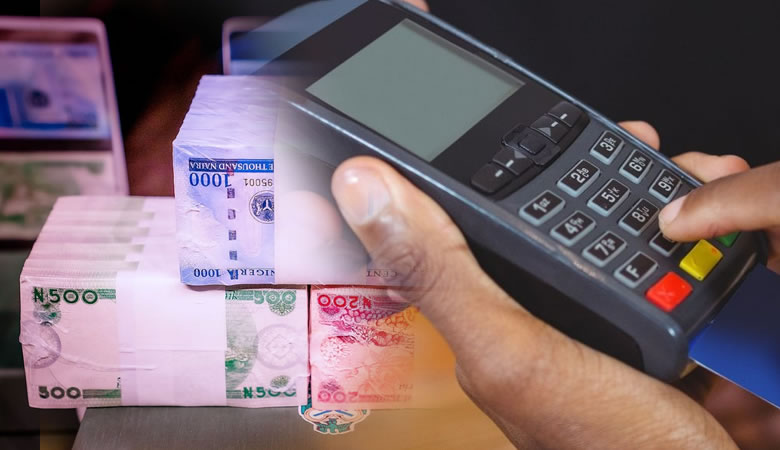In the first half of 2024, Point of Sale (PoS) transactions in Nigeria totaled N6.23 trillion, signaling a notable decline of 7.4 percent from the N6.79 trillion figure recorded during the same period in 2023, as reported by the Nigeria Inter-Bank Settlement System (NIBSS). The fluctuations in transaction values point to a shift in consumer behavior and economic conditions, which have influenced spending patterns across the country. This analysis of the data reveals the complexities of the Nigerian electronic payment ecosystem, where socio-economic factors and changing habits play a significant role in shaping financial activities.
The NIBSS data indicates a mixed performance in PoS transactions throughout the year. Notably, January 2024 experienced a significant surge, with transactions reaching N850.09 billion, an increase of 5.3 percent compared to N807.16 billion in January 2023. This initial growth suggested a positive start to the year; however, the enthusiasm was tempered as subsequent months reflected downward trends. February’s transactions fell to N805.05 billion, marking an 8.9 percent decrease from the previous year. These early indications hint at a volatile market influenced by various external factors that impacted consumer purchasing decisions.
March 2024 marked a particularly steep decline, experiencing a 16.5 percent drop in transactions to N961.86 billion from N1.15 trillion in the same month of 2023. The continuous decrease in PoS activity extended into April, with transactions plunging by 22.3 percent to N811.78 billion compared to N1.04 trillion from the previous year, amplifying concerns about consumer confidence and spending behavior during this period. Such sharp declines suggest that economic pressures or shifts in consumer preferences may have driven individuals towards alternative payment methods or a retrenchment in discretionary spending, impacting overall retail and service sectors reliant on PoS facilities.
May, however, brought a turnaround with PoS transactions bouncing back, increasing by 16.1 percent year-on-year to N868.66 billion. This resurgence may be attributed to various factors, including seasonal spending patterns, promotions, or responses to macroeconomic stimuli aimed at boosting consumer spending. Yet, the inconsistent trends continued into June when PoS transactions took a dip again by 1.3 percent to N930.76 billion, down from N943.38 billion in June 2023, illustrating the ongoing uncertainty within the market. These fluctuations indicate that while some months reflect optimism and recovery within electronic payment systems, broader economic challenges still persist.
The significant month of July 2024 saw a rebound in PoS transactions, which rose by 8.9 percent, reaching N1.005 trillion compared to N923.32 billion in July 2023. This increase was crucial in staving off the overall downward trend observed earlier in the year. Additionally, e-payment transactions in Nigeria saw a staggering increase of 86.44 percent, growing to N566.39 trillion in the first half of 2024 from N303.60 trillion in the same timeframe last year, highlighting the significant shift toward digital payment solutions among consumers and merchants alike. July’s figures especially illustrated the country’s growing inclination toward e-commerce and the embracing of fintech solutions, which may have contributed to the resurgence of transaction values.
The substantial growth in e-payment transactions alongside the mixed performance of PoS activity underscores a transformative phase in Nigeria’s payment landscape. The recorded N89.50 trillion in total transactions in July alone starkly contrasts with the N47.39 trillion in July 2023, emphasizing a consumer base increasingly tuning into online and digital transaction platforms as a matter of convenience and, potentially, necessity. This evolving digital payment ecosystem not only highlights the growing adaptability of Nigerian consumers to technology but also points toward the necessity for stakeholders in the financial sector to innovate and enhance the infrastructure supporting these transactions to accommodate changing consumer preferences effectively.
In conclusion, the data reflecting Nigeria’s Point of Sale transactions illustrates critical insights into the nation’s economic landscape and consumer behavior trends during the first half of 2024. The overall decline of PoS transactions suggests vulnerabilities within consumer spending habits that necessitate further investigation into the underlying causes. As e-payment systems continue to gain prominence, there exists an urgency for both businesses and financial institutions to strategically align their services to bolster consumer confidence and adapt to digital transformation. The mixed results highlight the need for ongoing analysis, innovation, and responsive strategies designed to enhance the payment ecosystem, ensuring that it meets the evolving demands of the Nigerian consumer in an increasingly digital economy.














